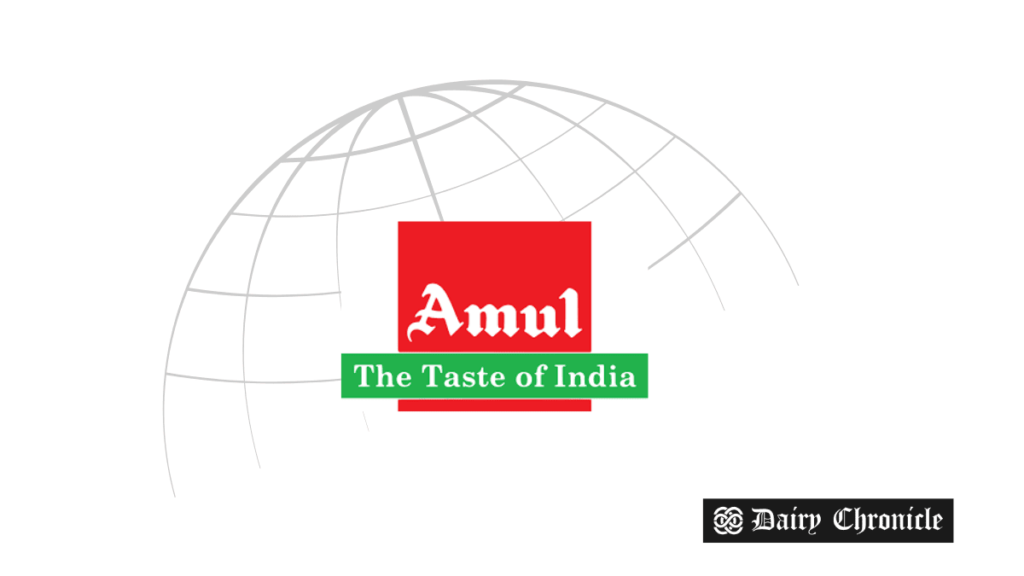Amul, operated by GCMMF, enters the US market through a partnership with MMPA, bringing a diverse range of dairy products to key cities while promoting sustainable farming and empowering rural communities.
Amul, one of India’s largest dairy brands, operated by the Gujarat Cooperative Milk Marketing Federation (GCMMF), has entered the US market through a strategic partnership with the Michigan Milk Producers Association (MMPA). Headquartered in Gujarat, India, Amul is known for its extensive range of dairy products, including milk, butter, cheese, yoghourt, and ice cream, as well as its commitment to empowering rural farmers through its cooperative business model.
Under the partnership, MMPA will manage milk collection and processing in the US, leveraging its existing infrastructure and expertise. Meanwhile, Amul will handle branding, marketing, and distribution across the US. This expansion brings a wide selection of Amul’s dairy offerings to states such as New York, New Jersey, Illinois, Washington, and Texas. With plans to reach more cities, including Los Angeles, Boston, and Miami, Amul aims to build a sustainable presence in the US dairy market and lay the foundation for future global expansions.
A Supply Chain Model Built for Success
India’s dairy sector plays a vital role in the economy, contributing over 5% to the GDP and supporting the livelihoods of millions of farmers. Amul’s success is attributed to its unique and efficient cooperative structure, which empowers small farmers by connecting them directly with consumers. This supply chain model, which blends large-scale economics with local production, offers several key advantages:
- Direct Procurement: Milk is sourced from over 3.6 million farmers directly, ensuring that producers receive fair prices without intermediaries.
- Regional Processing Facilities: Amul’s processing plants ensure that raw milk is promptly pasteurized, packaged, and distributed. This decentralized infrastructure helps meet demand across urban and rural markets.
- Extensive Distribution Network: Amul products reach consumers through a combination of wholesalers, retail stores, and Amul-branded outlets, ensuring rapid delivery. The cooperative also sells directly to customers through online platforms.
- Strict Quality Control: Hygiene and quality standards are enforced at every stage of the supply chain, from milk collection to packaging and retail, ensuring product safety for both domestic and international markets.
- Technological Integration: Advanced digital tools and software help manage inventory, optimize logistics, and track sales performance, enhancing efficiency and minimizing waste.
- Sustainability Focus: Amul actively promotes eco-friendly farming practices and energy-efficient technologies among farmers, further minimizing environmental impact.
Innovation and Marketing Excellence
GCMMF, the marketing arm of Amul, has embraced technology to improve both internal processes and consumer outreach. One of the first FMCG companies in India to adopt business-to-consumer (B2C) e-commerce, Amul has also introduced digital kiosks in rural areas, providing farmers with real-time market updates, weather forecasts, and technical advice. Additionally, the company collaborated with IBM to implement a robust enterprise resource planning (ERP) system that integrates operations across procurement, processing, and sales.
Amul’s distinctive advertising campaigns featuring the “Amul Girl” have become a cultural phenomenon in India. The mascot delivers humorous commentary on current events, fostering brand recognition and customer loyalty. Amul’s focus on affordable pricing, combined with quality and innovation, has helped it capture a significant share of the Indian market, making it a leader in the dairy industry.
Expanding Horizons: A Global Vision
Amul reported revenue of $10 billion in 2023-24, up from $9 billion the previous year, reflecting its sustained growth. The US partnership with MMPA aligns with the cooperative’s long-term strategy to expand its presence globally. Amul’s initial success in the American market will likely determine the pace of further expansion into other regions, such as Canada, Europe, and the Middle East.
The brand’s foray into the US is significant, not just for its business ambitions but also for Indian companies seeking to establish themselves on the global stage. Amul’s approach of blending traditional cooperative values with modern business practices sets an example for sustainable and inclusive growth.
By tapping into one of the world’s largest dairy markets, Amul is well-positioned to showcase Indian dairy products to a wider audience. If successful, the US expansion will not only strengthen Amul’s global footprint but also inspire other Indian brands to explore international opportunities, setting new benchmarks for sustainable growth and market innovation.



